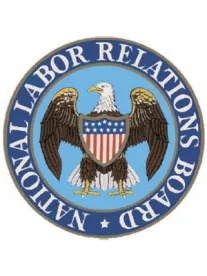The National Labor Relations Board (NLRB) has ruled that a property owner lawfully may prohibit the off-duty employees of its on-site contractors (or licensees) from accessing its private property to engage in Section 7 activity under the National Labor Relations Act (NLRA), unless (1) the off-duty employees regularly and exclusively work on the property, and (2) the owner of the property cannot show the off-duty employees do not have one or more reasonable non-trespassory alternative means to communicate their message. Bexar County Performing Arts Ctr. Found. d/b/a Tobin Ctr. for the Performing Arts, 368 NLRB No. 46 (Aug. 23, 2019). The decision applies retroactively. Chairman John Ring and Members Marvin Kaplan and William Emanuel were in the majority. Member Lauren McFerrin dissented.
The NLRB reversed New York New York Hotel & Casino, 356 NLRB 907 (2011), and Simon DeBartolo Group, 357 NLRB 1887 (2011), decided by the Obama Board.
Tobin County Performing Arts Center Foundation Facts
Bexar County Performing Arts Center Foundation owned and operated the Tobin Center for the Performing Arts. The City of San Antonio conveyed to the Tobin Center the deed to the Tobin Center property, including the surrounding sidewalks, with the stipulation that the property was to be used “primarily for the [p]ublic [p]urpose.”
The Tobin Center maintained a general rule prohibiting all solicitation on its private property, including the sidewalks. When a local bar or club wanted to distribute flyers on the Center’s private sidewalk, the Tobin Center consistently removed those individuals from its property.
The Symphony had a licensor-licensee relationship with Tobin through a use agreement by which it was entitled to use the Tobin Center for performances and rehearsals 22 weeks of the year. The Symphony was a party to a collective-bargaining agreement with a union under which Symphony employees worked 30 out of a 39-week performance season. During the 2014-2015 season, 88 percent of Symphony employees’ rehearsals and performances were at the Tobin Center. The percentage decreased to 83 percent for the 2015-2016 season and, even further, to 79 percent for the 2016-2017 season. During the 2016-2017 season, Symphony employees also performed at another theater (the Majestic Theater) and other venues throughout San Antonio, such as churches and high schools. During the performance season, Symphony employees also used the Tobin Center’s break room for various reasons.
Tobin’s president instructed his staff not to permit anyone to hand out leaflets on the Tobin property. When some Symphony employees and others began leafleting on the sidewalk in front of the Tobin Center’s main entrance, Tobin’s event staff and San Antonio police officers, at Tobin’s direction, told the Symphony employees and the sympathizers they could not pass out the leaflets on Tobin’s property, including the sidewalks. The leafletters moved to public sidewalks across the street from the Tobin Center.
ALJ’s Decision
The union filed an unfair labor practice charge alleging the Tobin Center’s removing the leafletters was unlawful. An NLRB Administrative Law Judge found that Tobin had violated the NLRA based on New York New York and Simon DeBartolo.
Criticism of New York New York Hotel & Casino and Simon DeBartolo Group
In reaching its decision, the Tobin Board overruled New York New York and Simon DeBartolo Group. The Board noted that whether and when a property owner has to grant access to the off-duty employees of an on-site contractor for Section 7 activity is in the Board’s discretion. The Board held that, in New York New York and Simon DeBartolo, the Obama Board exercised that discretion incorrectly.
New Standard for Determining Access for Contractor Employees
In announcing its new access standard, the Board cited the “three guiding principles” the U.S. Supreme Court has established regarding access to private property to engage in Section 7 activity:
-
Employee Section 7 rights are not absolute – when employees’ Section 7 rights conflict with a property owner’s property rights, an accommodation between the two “must be obtained with as little destruction of one as is consistent with the maintenance of the other”;
-
A balance must be made between the “nature and strength” of the Section 7 rights and the private property rights of the property owner; and
-
Most important, when Section 7 rights infringe on private property rights, the distinction between the union activities of employees versus those of nonemployees is one “of substance.”
The Board held that:
-
A property owner may exclude from its property off-duty contractor employees seeking access to the property to engage in Section 7 activity unless (i) those employees work both regularly and exclusively on the property, and (ii) the property owner fails to show that they have one or more reasonable non-trespassory alternative means to communicate their message. The availability of one non-trespassory channel will defeat a claim for access.
-
It would consider contractor employees to have worked “regularly” on the owner’s property only if the contractor regularly conducted business or performed services there.
-
Contractor employees will be considered to have worked “exclusively” on the owner’s property if they performed all their work for that contractor on the property, even if they also work a second job elsewhere for another employer.
The NLRB decided the Tobin Center lawfully prohibited the employees from accessing its property because:
-
Symphony employees did not work exclusively on the property, and the Symphony did not regularly conduct business or perform services there because it only used the property 22 weeks of the year.
-
Symphony employees had a reasonable alternative non-trespassory channel of communicating their concerns to the public by leafleting on public property across the street from the Tobin Center. They also had access through mass and social media.
Conclusion
The NLRB has sent a strong message that, when non-employees are involved, private property rights are sacrosanct, except in extremely limited circumstances. Access issues are a priority of the NLRB’s pro-employer General Counsel (its chief prosecutor), so employers should expect additional favorable Board decisions on this issue.






 />i
/>i
